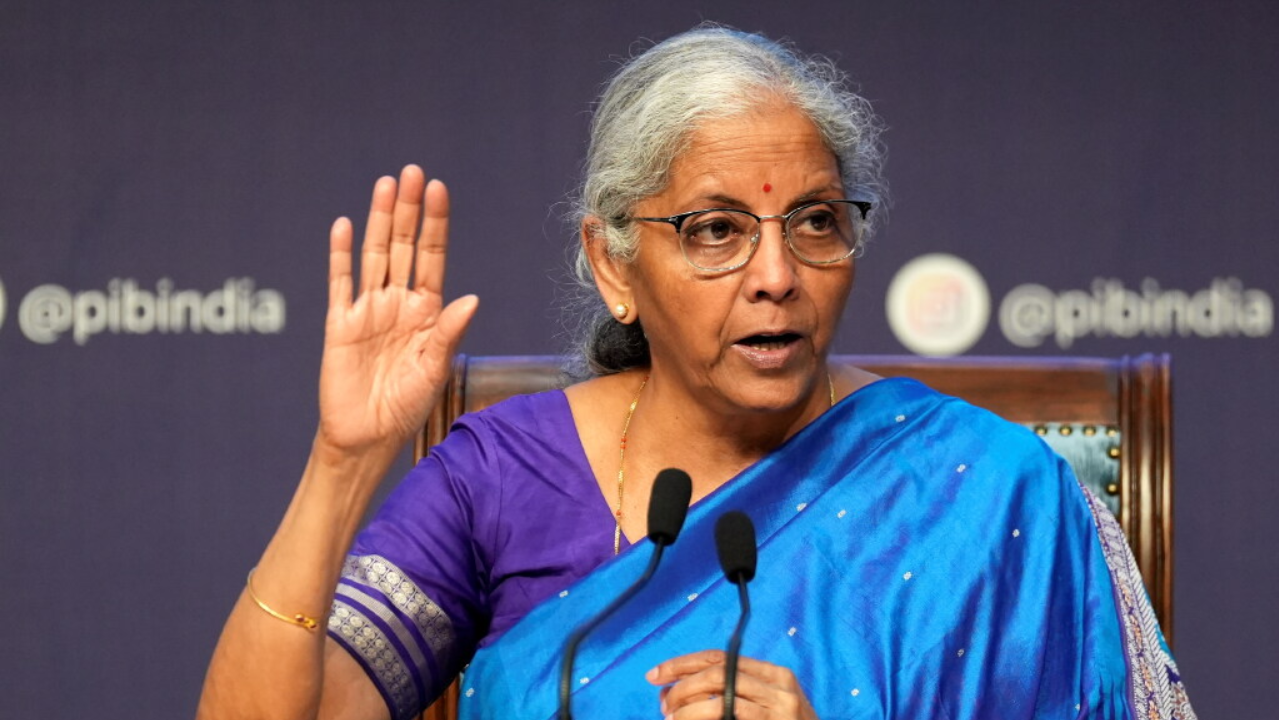Politics
Nirmala Sitharaman Questions Opposition to 40% GST on Tobacco

Finance Minister Nirmala Sitharaman has raised questions regarding the opposition to proposed taxation rates on tobacco products during a session in the Indian Parliament. The government is considering a significant increase in the Goods and Services Tax (GST) on sin goods, particularly tobacco, from the current rate to 40%. This move has sparked debate among lawmakers, prompting Sitharaman to challenge the rationale behind supporting a lower tax rate of just 5%.
During her address on October 12, 2023, Sitharaman emphasized the need for a balanced approach to taxation on harmful products. She argued that a 40% GST aligns with public health objectives while also contributing to government revenues. The proposal aims to discourage tobacco consumption and mitigate health risks associated with its use. Sitharaman posed a rhetorical question to her opponents: “Does Congress want tobacco to be taxed at just 5% GST?”
The Finance Minister’s remarks came amid discussions on the broader implications of sin tax policies for public health and fiscal management. Lawmakers in the opposition have expressed concerns that such a steep tax could disproportionately affect low-income consumers, potentially leading to increased smuggling and illicit trade. Sitharaman countered these arguments by highlighting the importance of prioritizing public health over economic interests.
Balancing Public Health and Revenue Generation
Sitharaman’s comments reflect a growing trend among governments worldwide to impose higher taxes on tobacco and other harmful products. Studies have shown that increasing taxes on tobacco can significantly reduce consumption, particularly among younger demographics. By positioning the 40% GST as a tool for both health promotion and revenue generation, the Indian government seeks to address the dual challenges of public health and budgetary constraints.
According to the World Health Organization (WHO), higher tobacco taxes are one of the most effective ways to reduce tobacco use globally. The organization recommends that countries adopt policies that make tobacco products less affordable. In India, where tobacco use remains prevalent, the government is under pressure to implement measures that can lead to substantial health improvements.
The ongoing debate over the GST on tobacco is part of a larger conversation regarding fiscal policy and public health in India. As lawmakers weigh the potential benefits of increased taxation against the risks of economic fallout, the outcome will likely shape future discussions on tax policy concerning other sin goods, including alcohol and sugary beverages.
Future Implications for Tax Policy
As the Indian Parliament prepares to vote on the proposed tax changes, the implications of such a decision extend beyond just tobacco. The government’s stance may set a precedent for how sin goods are taxed in the future, influencing both consumer behavior and public health outcomes.
The dialogue surrounding the GST on tobacco reflects the complexities of public policy, where health considerations often clash with economic realities. A decision to adopt the 40% GST could signal a commitment to prioritizing health over profit, reinforcing the government’s role in regulating harmful products.
In conclusion, the discourse initiated by Nirmala Sitharaman not only addresses the immediate concerns regarding tobacco taxation but also opens the floor to broader discussions on health, economics, and responsible governance. As the debate continues, the outcomes will resonate within the Indian economy and public health landscape for years to come.
-

 World5 months ago
World5 months agoSBI Announces QIP Floor Price at ₹811.05 Per Share
-

 Lifestyle5 months ago
Lifestyle5 months agoCept Unveils ₹3.1 Crore Urban Mobility Plan for Sustainable Growth
-

 Science4 months ago
Science4 months agoNew Blood Group Discovered in South Indian Woman at Rotary Centre
-

 World5 months ago
World5 months agoTorrential Rains Cause Flash Flooding in New York and New Jersey
-

 Top Stories5 months ago
Top Stories5 months agoKonkani Cultural Organisation to Host Pearl Jubilee in Abu Dhabi
-

 Sports4 months ago
Sports4 months agoBroad Advocates for Bowling Change Ahead of Final Test Against India
-

 Science5 months ago
Science5 months agoNothing Headphone 1 Review: A Bold Contender in Audio Design
-

 Top Stories5 months ago
Top Stories5 months agoAir India Crash Investigation Highlights Boeing Fuel Switch Concerns
-

 Business5 months ago
Business5 months agoIndian Stock Market Rebounds: Sensex and Nifty Rise After Four-Day Decline
-

 Sports4 months ago
Sports4 months agoCristian Totti Retires at 19: Pressure of Fame Takes Toll
-

 Politics5 months ago
Politics5 months agoAbandoned Doberman Finds New Home After Journey to Prague
-

 Top Stories5 months ago
Top Stories5 months agoPatna Bank Manager Abhishek Varun Found Dead in Well









